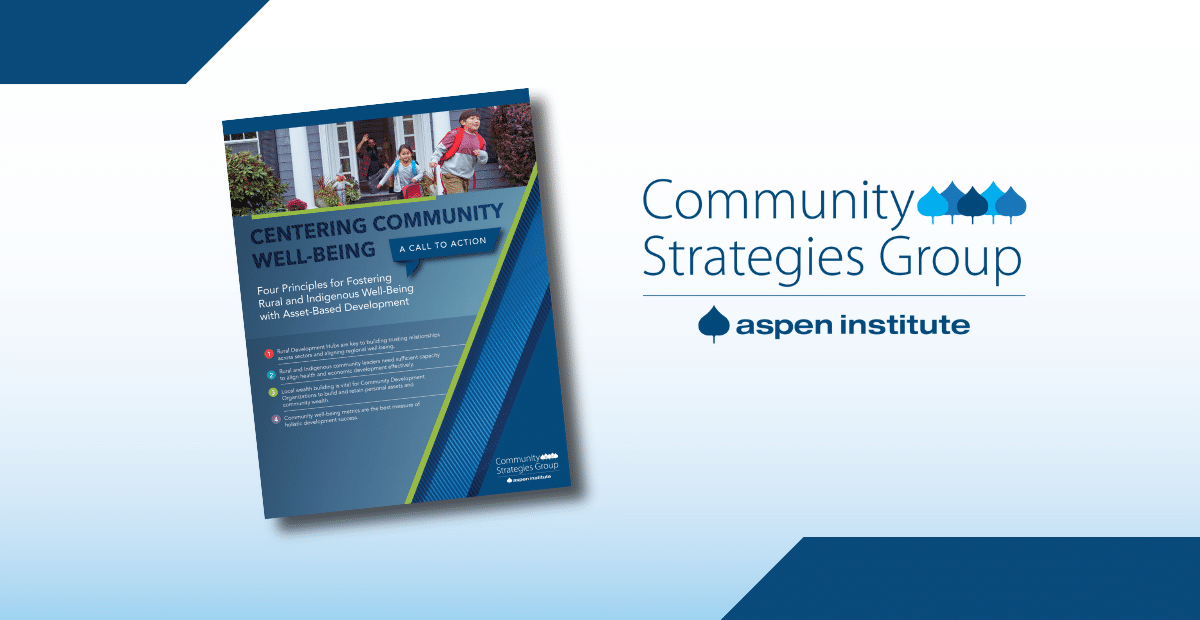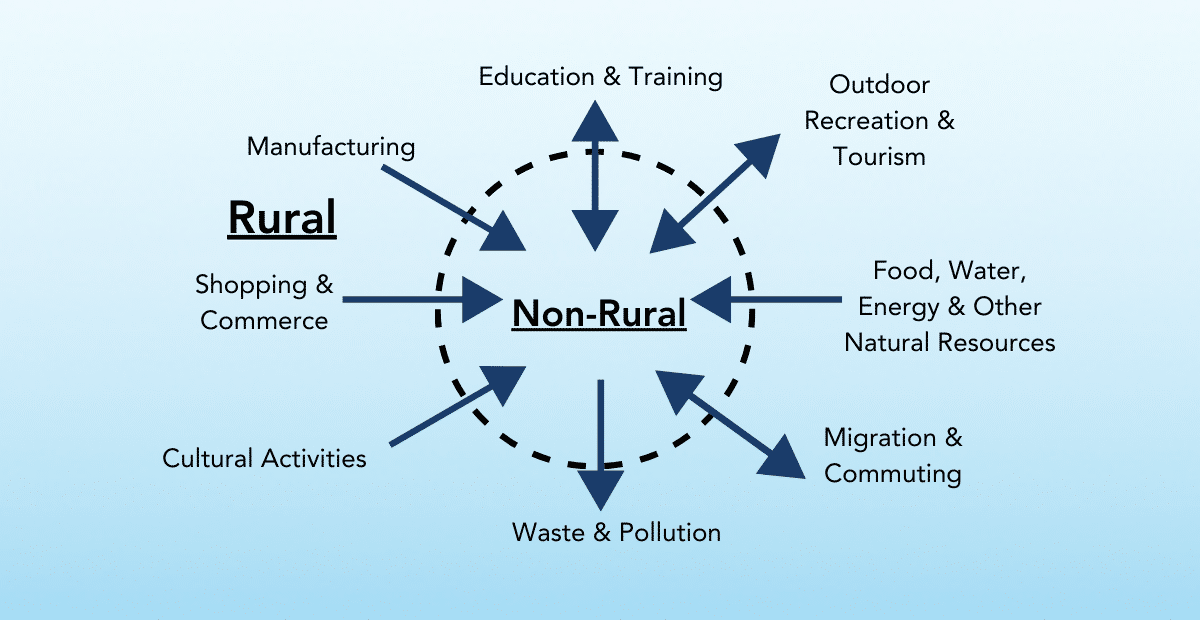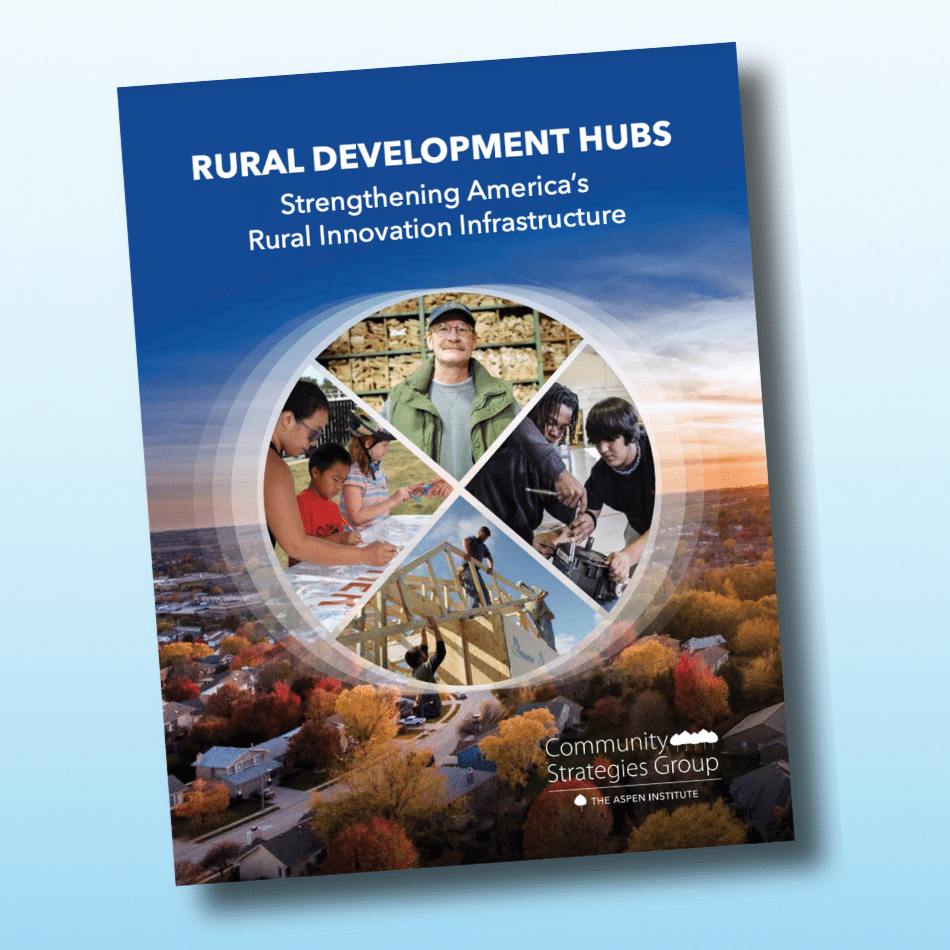On January 31, 2024, an audience of over 450 attended a virtual Rural Opportunity and Development Session to hear takeaways from a new Brookings Institution report quantifying new federal opportunities for funding and technical assistance for rural America.
Attendees joined to learn more about which federal opportunities are most significant to rural communities and what steps communities need to take to qualify for these investments. These resources (Infrastructure Investment and Jobs Act (IIJA), CHIPS and Science Act (CHIPS); Inflation Reduction Act (IRA) and more) present an enormous opportunity for rural places to advance equitable community and economic development. However, navigating the scale of what’s available and the complexity of the programs is challenging, especially for lower-capacity and underinvested communities.
As part of the discussion, rural economic development leaders shared the challenges and opportunities they see on the horizon when it comes to funding. And don’t miss related rural economic resources at the bottom of this page.
Part 1 – Inflation Reduction Act and more
Part one of the event involved a presentation by Tony Pipa, senior fellow at the Brookings Institution. He shared takeaways from the new report, “What’s in it for rural: Analyzing the opportunities for rural America in IIJA, CHIPS, and IRA?” and then engaged in a short Q&A with Nathan Ohle from the International Economic Development Council, moderator for the event. [Acronyms: Infrastructure Investment and Jobs Act (IIJA), most commonly known as the Bipartisan Infrastructure Law (BIL); CHIPS and Science Act (CHIPS); and Inflation Reduction Act (IRA)]
Click here to jump to this segment. https://youtu.be/fs8-xhaWvl0?t=204
Part 2
Part two of the event involved a roundtable discussion with four rural economic development specialists: Brett Doney of the Great Falls Development Authority, Ann Lichter of the Rural Innovation Initiative, Josh Mejia, the founder of Mejia & Company, and Bill Brown of the Indiana University Environmental Resilience Institute. Click here to jump to this segment: https://youtu.be/fs8-xhaWvl0?t=1573
Rural Economic Resources
We present the following resources without endorsement that participants shared during the session.
- The full “What’s in it for rural” report relies on a large database of federal grants. Click here to access that database.
- The Justice40 Initiative is an effort by the White House to tackle climate change and economic development, with an intentional focus on rural and Indigenous communities.
- The Climate and Economic Development Screening Tool allows users to explore census tract data on climate and economy and a host of other variables.
- Thriving Communities Technical Assistance Centers are available to help rural and Indigenous communities secure federal funding.
- Resource Rural is collecting stories about rural successes and wins to help amplify those successful stories to a national audience. Click here to submit a story.
- The Climate Program Portal is a resource for organizations and public agencies tracking federal investments in climate initiatives.
- The Economic Recovery Corps is a new, collaborative initiative from IEDC supporting distressed communities and regions throughout the US by strengthening organizational capacity in rural and Indigenous communities.
- The new book Rural Renaissance shares insights and lessons on the opportunity for clean energy in rural communities.
Moderator
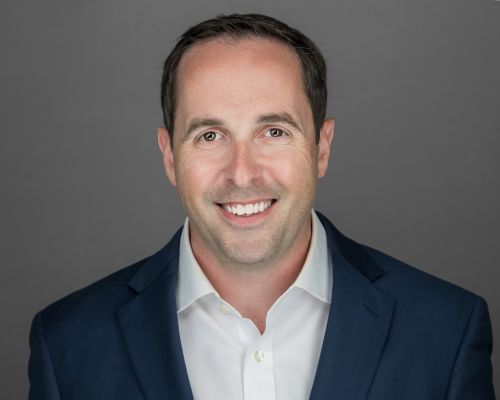
Nathan Ohle is an internationally recognized expert in economic development and a leader of public, private and nonprofit organizations. He currently serves as the President & CEO of the International Economic Development Council (IEDC), a non-profit, non-partisan membership organization serving economic developers, with more than 5,000 members globally. In 2017, he was selected as one of 40 Under 40 Rising Stars in economic development internationally. Nathan’s economic development experience and leadership span decades at the local, state, and federal levels. He served as the Senior Advisor at the U.S. Economic Development Administration (EDA), overseeing policy and external affairs. He also was the lead for the U.S. Department of Commerce on the White House Rural Council and the Administration-wide Community Solutions team, leading initiatives across the Department of Commerce.
Speakers

Tony Pipa is a senior fellow in the Center for Sustainable Development at the Brookings Institution. Tony launched and leads the Reimagining Rural Policy initiative, which seeks to modernize and transform U.S. policy to better enable equitable and sustainable development across rural America. He also launched and leads the Local Leadership on the Sustainable Development Goals (SDGs) initiative, which explores the approach cities and local institutions are taking to solve local problems while driving progress on global policy and transnational issues. Tony has three decades of executive leadership experience in the philanthropic and public sectors addressing poverty and advancing inclusive economic development in the U.S. and globally. He served as chief strategy officer at the U.S. Agency for International Development and held multiple senior policy positions at the agency.
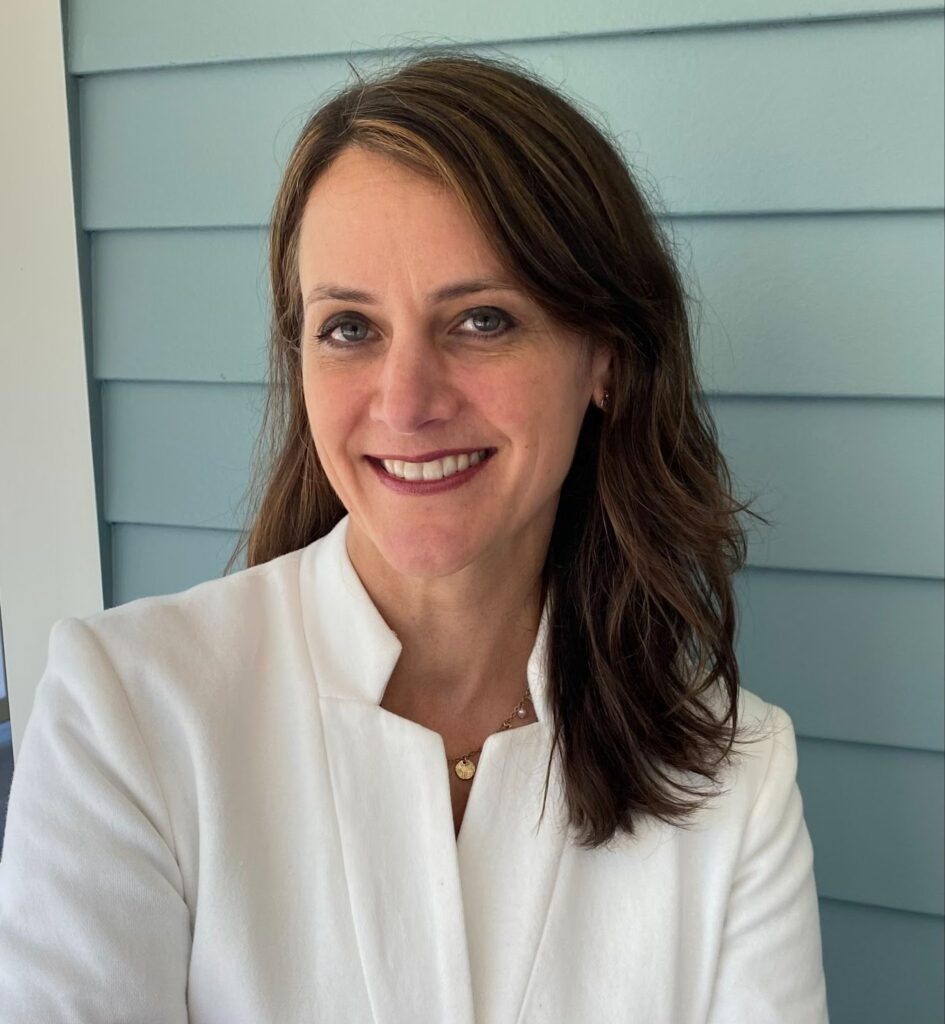
Ann Lichter leads the Rural Innovation Initiative, a new project to bridge the opportunity gap in rural America by helping communities build the capacity to create resilient, innovation-based jobs and businesses and fully participate in the digital economy. Ann has led multiple efforts to design, implement, and scale new programs at the national level. As an executive at the U.S. Department of Labor, Ann piloted new approaches to promote labor law compliance, including expanding the use of data to drive strategic and operational decision-making. She has broad experience managing partnerships, communications, and intergovernmental relations. As an attorney at Hogan Lovells, she advised clients on managing their federal research grants and contracts. Ann grew up in Elkins, West Virginia. She is a Truman Scholar and has a B.A. in cultural anthropology from Wellesley College and a J.D. from Columbia Law School.

Josh Mejia, the founder of Mejia & Company, an economic development consulting firm, assists communities across the U.S., Canada, and Latin America, along with private sector clients, in developing and implementing innovative economic development strategies. He also aids in commercial and industrial development projects for companies and investors actively seeking to expand or relocate. Mejia’s efforts in Brownsville, Texas, and other communities across the U.S., Canada, and Latin America have garnered recognition from industry leaders like the U.S. Small Business Administration, U.S. Department of Commerce, the International Economic Development Council (IEDC), and the Development Counsellors International (DCI) for strategies that drive economic development toward new frontiers. These recognitions include the 2020 Young Economic Development Professional award from IEDC and the 2021 “40 Under 40” award from DCI, among others.

For 17 years, Brett Doney has led the Great Falls Development Alliance (GFDA), a public/private economic development partnership serving the 13-county Great Falls, Montana trade area. GFDA’s mission is to, “Grow diverse economic opportunities that enhance quality of life.” GFDA is active in business startup, retention, expansion, and attraction, and in workforce, rural infrastructure, talent attraction, and downtown/riverfront redevelopment. Strategic sectors include food, ag and bio processing, energy, advanced manufacturing, business services, health/bioscience, tourism, and defense. Under Doney’s leadership, GFDA has helped attract over $4.5 billion of private investment in the trade area. GFDA is a certified Community Development Financial Institution (CDFI) with $35.5 million in loan capital, and developer of the heavy industrial Great Falls AgriTech Park.

Bill Brown joined the Indiana University Environmental Resilience Institute as the assistant director for strategy and engagement a year ago. He was the first director of sustainability at Indiana University and the first executive director of the IU Center for Rural Engagement. In a former career as a public facility architect, he was a member of the AIA National Committee on the Environment and a participant in The Greening of the White House in 1992-1994. His architectural portfolio includes dozens of public schools and libraries, including the first certified energy-positive public library in America. He is a graduate of Indiana University and Ball State University College of Architecture and Planning.
ABOUT THE ROAD SESSIONS AND ORGANIZING PARTNERS
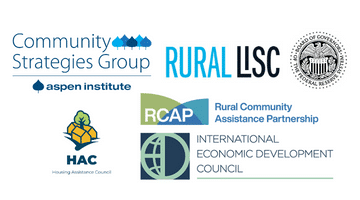
The ROAD Sessions highlight and unpack rural development ideas and strategies that promote access to inclusive economic opportunity and long-term resilience. ROAD Sessions feature stories of on-the-ground practitioners with experience, wisdom, and savvy to share. The series reflects and emphasizes the full diversity of rural America, spotlights rural America’s assets and challenges, and lifts voices and lived experience from a wide range of rural communities and economies. Each Session includes an added opportunity for peer exchange.
Overall, the ROAD Sessions aim to infuse practitioner stories and lessons into rural narratives, policymaking, and practice across the country and to strengthen the network of organizations serving rural communities and regions.
The ROAD Sessions are virtual exchanges co-designed as part of Thrive Rural – an effort of the Aspen Institute Community Strategies Group with support from the Robert Wood Johnson Foundation – and in collaboration with the Housing Assistance Council, the Rural Community Assistance Partnership, Rural LISC, the International Economic Development Council, and the Federal Reserve Board.
Dive deeper
Learn more about regional place-based investments:
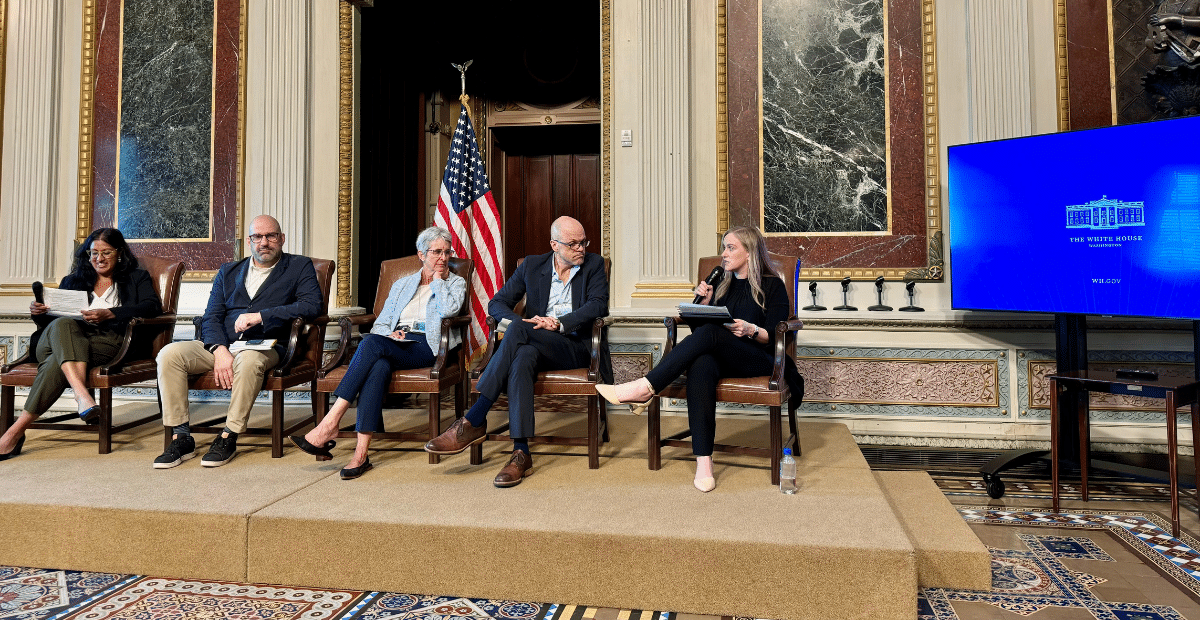
Unlocking Potential: Regional Place-Based Investments
Aspen CSG Co-Executive Director Chris Estes shares why place-based investments are critical at the White House Summit on Capital Support for Place-Based Economic Development.


